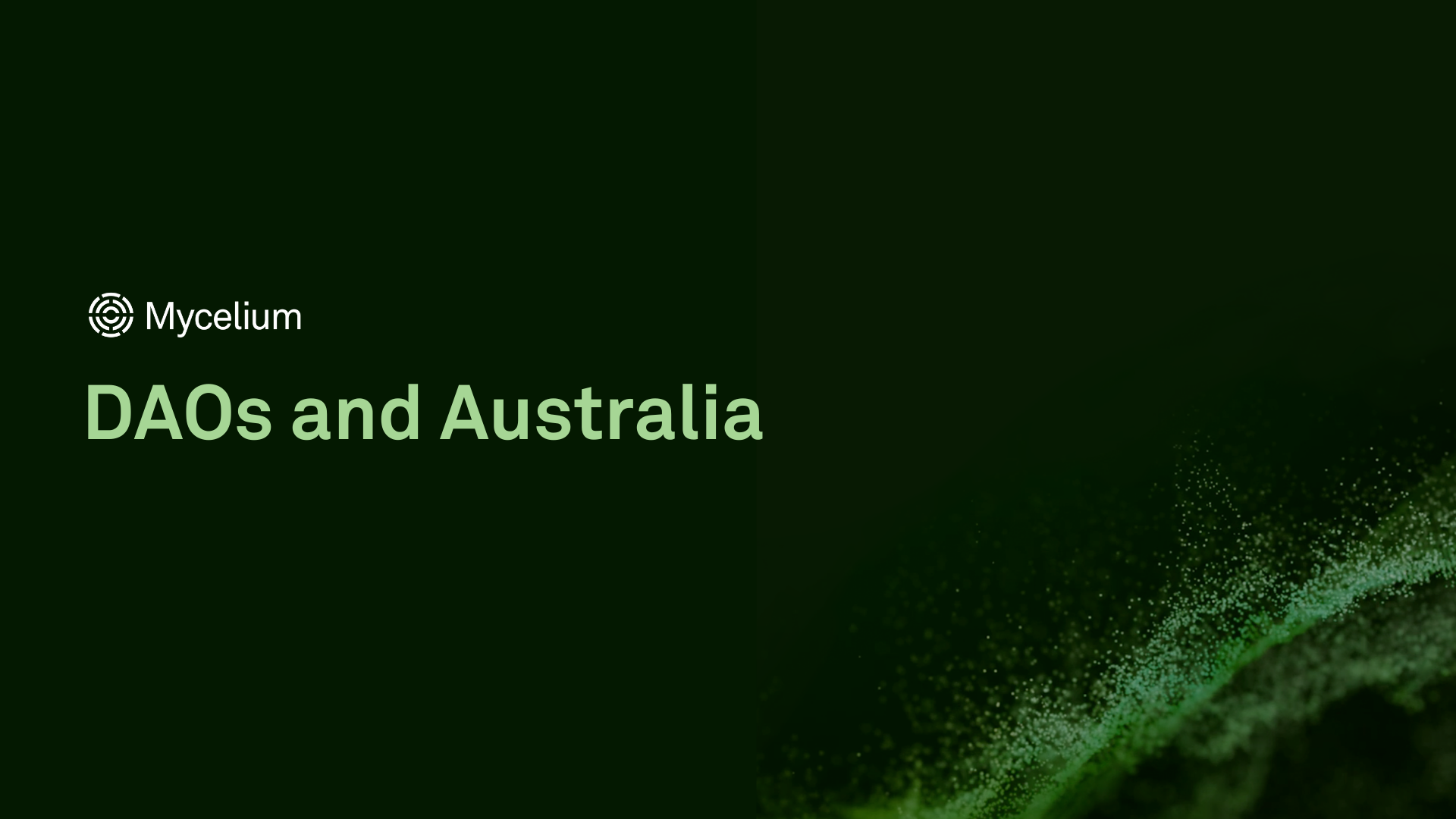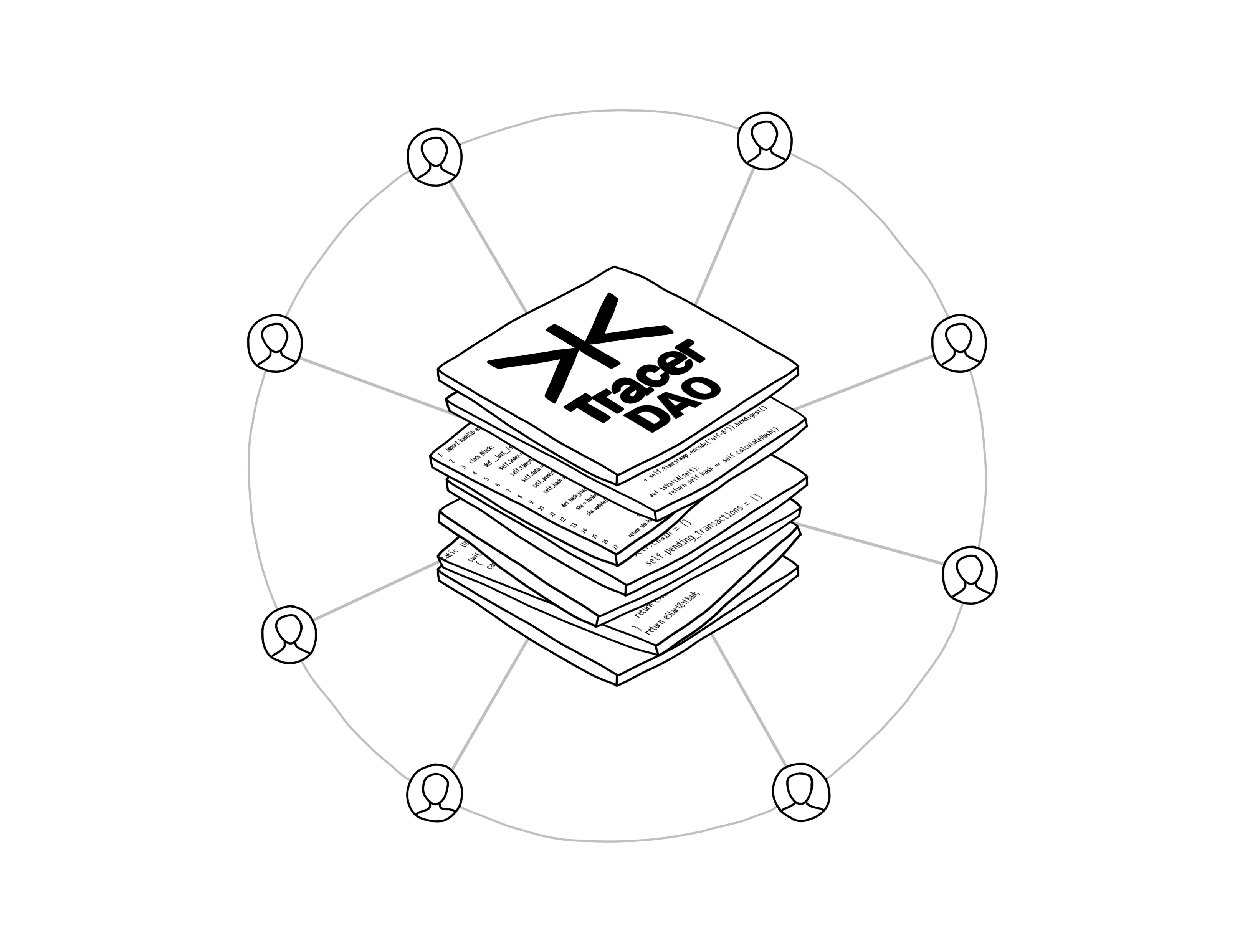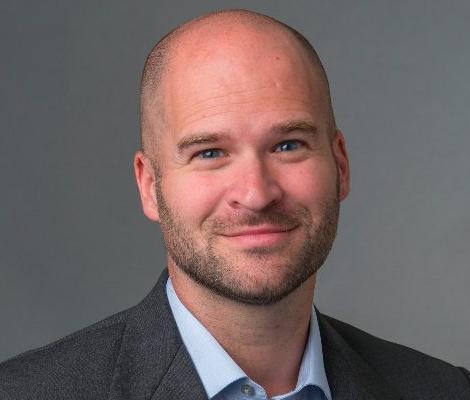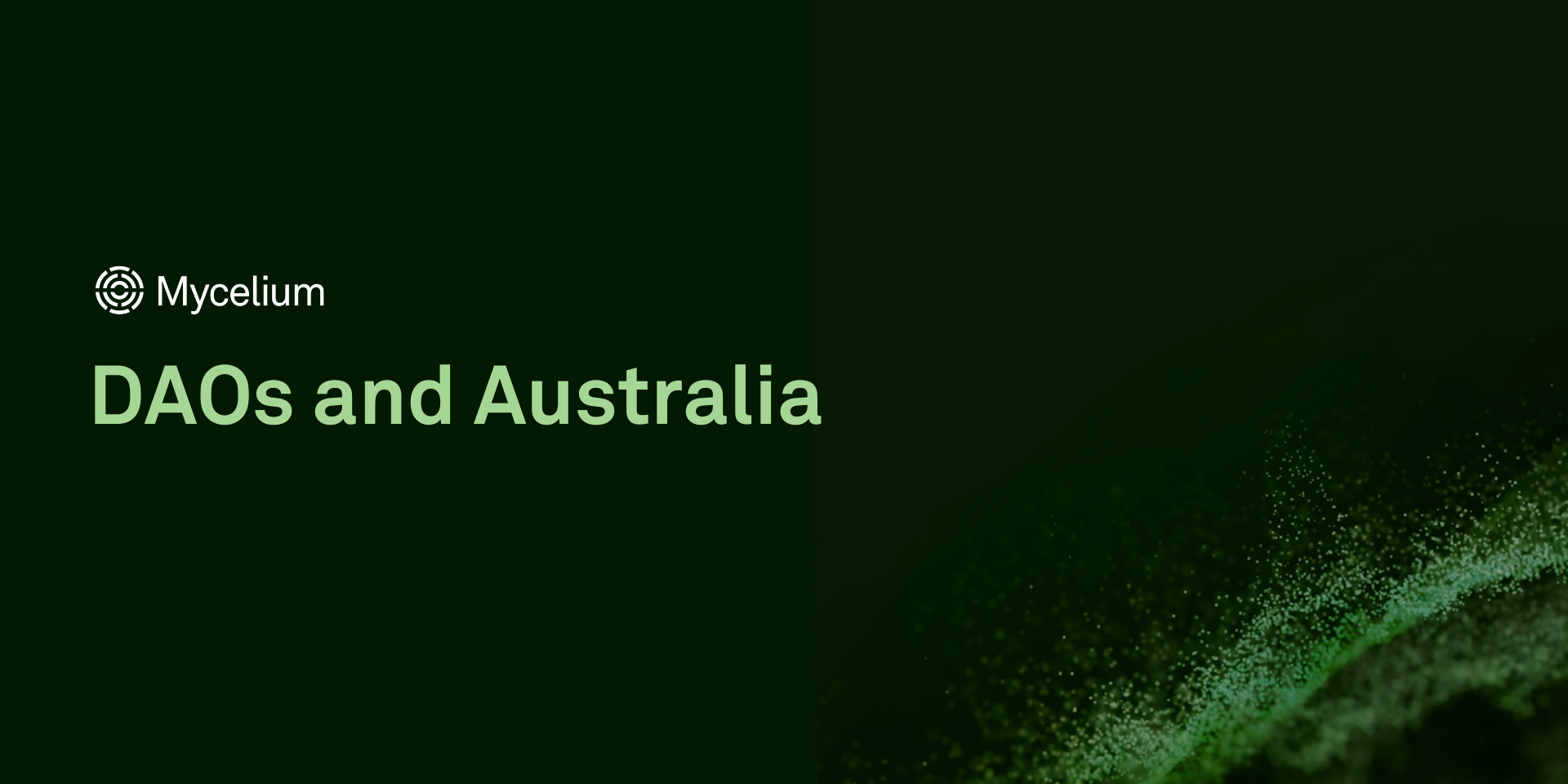
What are DAOs?
A decentralised autonomous organisation (DAO) is a new form of business structure whose governance is decentralised and encoded in one or more smart contracts. DAOs exist on blockchains and allow an infinite number of participants (including individuals, companies or other DAOs) to coordinate their decision-making and resources transparently.
To date, DAOs have been extremely effective in housing truly global organisations, particularly in the blockchain industry. DAOs are necessarily internet-based entities, and have been described as "subreddits with bank accounts". More often than not, performant blockchain projects successfully leverage effective DAO operations alongside an effective product offering. This has led to a critical mass of teams around the world thinking long and hard about how to best build a DAO.
The opportunity for DAO-friendly jurisdictions is enormous. We have observed communities form DAOs who now control billions of dollars in a variety of industries, including: software development, venture capital, online gaming, art galleries, charities, research institutions, content creation and more.
The staggering time and resource requirements faced by companies seeking to operate globally over the last 10-20 years have made it somewhat impossible for most business to serve a global audience. DAOs significantly reduce the barrier for businesses to start "day 1 global" and, as a result, will allow other industries to join the wave of growth and innovation that has been observed in the blockchain industry in recent years.
Mycelium predicts that, given the success and rise of the DAO business structure in recent years, the use of DAOs as business structures will continue to accelerate for projects both on and off chain.
How exactly are blockchains and smart contracts related to DAOs?
A person describing the functionality of blockchains often references the Bitcoin blockchain. However, the Bitcoin blockchain is not the best example of a DAO-friendly blockchain.
The Bitcoin blockchain is a fantastic "one-account" blockchain. That is, it's suited to numerous people around the world creating an account on the blockchain (each with a unique address), called an "externally-owned account" or "EOA". They can then send assets and messages to and from each others EOAs transparently.
The Ethereum blockchain (and other blockchains launched since Bitcoin) operate effectively as "two-account" blockchains. In addition to EOAs, a second kind of account, known as a "contract account", can be used to write coded logic and "deploy" it to its own unique address. This form of account has become colloquially known as a "smart contract". A DAO is one form of smart contract, whose coded logic is designed represent governance rules, decided by the deployer.

Will DAOs be recognised in Australia?
Earlier this year, in its submission to the Australian Senate's Select Committee on Australia as a Technology and Financial Centre (Bragg Committee), Mycelium recommended that a new kind of business structure be introduced in Australia which is suitable for DAOs. To achieve this, Mycelium recommended that the Australian Government should ratify the Coalition of Automated Legal Applications’ (COALA’s), Model Law for Decentralized Autonomous Organizations (DAO Model Law). To learn more about the DAO Model Law, refer to our previous article. Mycelium was not alone in this view: five other submissions to the Bragg Committee also cited the need to recognise DAOs in Australia (ANU, DLA, HSF, RMIT and Mills Oakley).

You can read the rest of Mycelium's recommendations in its full submission to the Bragg Committee.
Last month, the Committee released its final report. Recommendation four of that report was:
"The committee recommends that the Australian Government establish a new Decentralised Autonomous Organisation company structure."
Recommendation four is an groundbreaking confirmation from the Australian Senate about the future of DAOs in Australia.
What happens next?
At the most recent Senate Estimates, Committee Chair of the Senate Economics Legislation Committee Senator Paul Scarr raised the question of legislating and regulating DAOs to ASIC Chair Mr. Joe Longo, on the basis that, in his view:
"Australia has a real opportunity here to legislate with respect to decentralised autonomous organisations."
Senator Scarr asked ASIC whether it has done any relevant work on DAOs, and any observations it has in relation to the work done by the Bragg Committee. ASIC Chair Joe Longo replied:
"Decentralised autonomous organisations are a unique, curious entity... we have a lot to learn about how DAOs work... and we welcome the debate and the discussion.
With corporations, there are people behind the entity, we call them boards. But boards don't exist with DAOs: they are a combination of smart contracts and artificial intelligence and how we think about regulating them is ahead of us. It's certainly an issue that ASIC is thinking about and we look forward to working with Treasury and other governments and other regulators to see how this new form, or grouping, can be part of the future.
I think there is a lot of potential there, but also a lot of work ahead of us to engage with this idea which is clearly getting traction amongst the international academic community and clearly in Australia. We look forward to being part of that."
ASIC Commissioner Cathie Armour added:
"I think it's an area we really need to think about in the future and it does pose some really interesting philosophical questions for the way, in Australia , we regulate organisations like companies... because it's a very different focus from an individual accountability."
We look forward to working with the Australian Government and ASIC in recognising DAO entities in Australia.

Aaron Wright is a Professor at Cardozo Law and Co-founder at Tribute Labs, The LAO and Flamingo DAO. Aaron worked closely with the Wyoming Government in preparing the DAO Bill, which now enables DAOs to be recognised as Limited Liability Companies (LLCs) in Wyoming. To learn more about the Wyoming Bill, refer to our previous article. According to Aaron:
"My experience in Wyoming has been very promising in terms of how DAOs can be brought into traditional corporate structures.
Australia has a real opportunity to follow Wyoming's lead in first understanding and second adopting an appropriate legislative regime for DAOs. I look forward to working with Mycelium and the Australian Government in finding an appropriate solution."
Mycelium will continue advocating for the recognition of DAOs in Australia and abroad. We will keep you up-to-date with all developments here.
